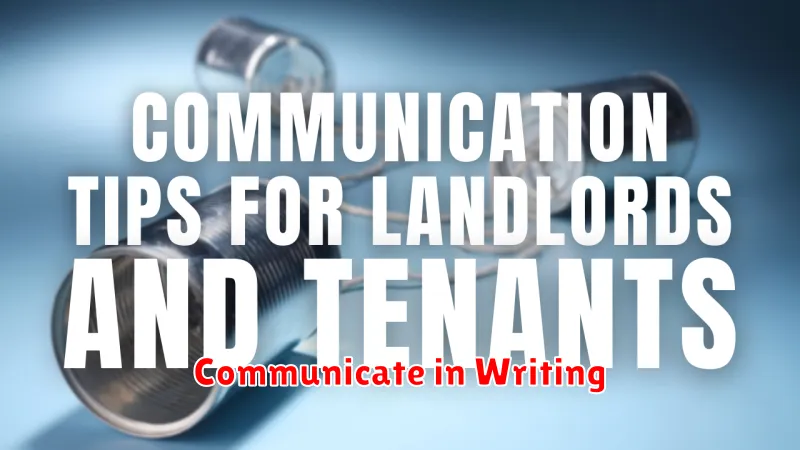Dealing with a bad landlord can be a frustrating and stressful experience. Whether you’re facing unreasonable demands, ignored maintenance requests, or even breaches of your lease agreement, it’s important to address the situation professionally. Taking a calm, documented approach can help protect your rights and resolve the issue effectively. This article will guide you through the necessary steps to handle a difficult landlord situation with professionalism, ensuring you maintain a positive tenant-landlord relationship while advocating for your needs. We’ll explore strategies for communication, documentation, and understanding your legal rights as a tenant.
Navigating the complexities of tenant rights and landlord responsibilities can be challenging. From understanding the nuances of your lease agreement to knowing the appropriate channels for dispute resolution, it’s crucial to be informed. This guide provides practical advice on how to deal with a bad landlord professionally, covering topics such as effective communication techniques, proper documentation of issues, and understanding the legal recourse available to you. Learn how to assert your rights while maintaining a professional demeanor, ultimately leading to a more positive and productive living situation.
Identify the Problem Clearly
Before taking any action, clearly identify the issue you are facing with your landlord. Is it a breach of your lease agreement? A failure to fulfill their legal responsibilities regarding repairs or habitability? Or a pattern of unprofessional communication or harassment?
Document the problem thoroughly. This involves noting dates, times, specific details of the incidents, and any attempts you made to communicate with your landlord about the issue. Keep copies of any written communication, such as emails or letters.
Be specific in your documentation. Vague complaints are harder to address and resolve. For instance, instead of saying “The apartment is always cold,” specify, “The heating system has failed to maintain a temperature above 65 degrees Fahrenheit despite repeated requests for repairs on [date] and [date].”
Document Everything
Maintaining meticulous records is crucial when dealing with a problematic landlord. This documentation serves as vital evidence should the situation escalate and require legal intervention.
Keep a detailed log of every interaction, including dates, times, and the nature of the communication. Whether it’s a phone call, email, or text message, document it. If possible, retain physical copies of notices, repair requests, and rent receipts.
Take photos or videos of any property damage or maintenance issues. These visuals can provide strong supporting evidence for your claims.
Communicate in Writing

Maintaining a written record of all communication with your landlord is crucial. This provides documentation should any legal issues arise. Always communicate your concerns formally and respectfully in writing, even if you’ve already discussed them verbally.
Send your communications via certified mail with return receipt requested to ensure proof of delivery. Keep copies of all correspondence for your records. This includes emails, text messages (if applicable), and physical letters.
Clearly and concisely outline the issue, the date it occurred, and any attempted resolutions. Focus on factual information and avoid emotional language. State your desired outcome clearly and provide a reasonable timeframe for the landlord to address the issue.
Know Your Lease Terms
Before taking any action, thoroughly review your lease agreement. Familiarize yourself with your rights and responsibilities, as well as those of your landlord. This document outlines the terms of your tenancy, including rent payment schedules, late fees, maintenance responsibilities, and the duration of your lease.
Pay close attention to clauses related to repairs, habitability, and communication protocols. Understanding these details is crucial for building a strong case if you need to escalate the situation.
Key areas to focus on:
- Duration of the lease
- Rent amount and payment schedule
- Responsibilities for repairs and maintenance
- Notice requirements for termination or renewal
- Clauses related to habitability and safety
Reach Out to Tenant Associations
If other tenants share similar landlord issues, consider contacting your local tenant association or tenant union. These organizations provide resources and support for renters, including advice on dealing with difficult landlord situations. They can offer guidance on legal rights, mediation, and collective action. Tenant associations often have experience navigating landlord-tenant disputes and can offer valuable insights. They may also be aware of patterns of misconduct by specific landlords, which can strengthen your case.
Locating a tenant association can be done through online searches, contacting local government housing agencies, or inquiring with community organizations.
File a Formal Complaint
If informal attempts to resolve issues with your landlord have failed, filing a formal complaint may be your next step. This typically involves contacting the appropriate housing authority or tenant rights organization in your jurisdiction.
Document everything. This includes copies of your lease, communications with your landlord, photos or videos of the issue, and any other relevant evidence. A strong case relies on detailed documentation.
Understand your local tenant laws. Familiarize yourself with the specific regulations regarding your situation to ensure your complaint is valid and actionable. Consulting with a legal professional can provide valuable guidance.
Legal Options If Problems Persist

If professional communication fails to resolve landlord-tenant issues, legal options may be necessary. Documentation of all communication and issues is crucial. This includes dates, times, and descriptions of problems, as well as copies of any notices or correspondence.
Depending on the nature of the problem and your jurisdiction, several legal avenues might be available. These could include contacting your local housing authority, pursuing mediation, or filing a lawsuit in small claims court for minor disputes. For serious breaches of the lease agreement, consulting with a tenant rights attorney is advisable.
Retaliation by a landlord for legitimate complaints is illegal. Document any suspected retaliatory actions and report them to the appropriate authorities.
Staying Professional Under Pressure
Maintaining a professional demeanor when dealing with a difficult landlord can be challenging, but it’s crucial for effective communication and resolution. Even when frustrated, avoid personal attacks or emotional outbursts. Focus on the facts of the situation and communicate your concerns clearly and respectfully.
Document everything. This includes emails, letters, phone call logs, and any other interaction. Detailed documentation strengthens your position and provides evidence if further action is required. Keep a calm and objective tone in all your correspondence. This helps ensure your message is received and understood without escalating the situation.
When to Consider Moving
While professional communication is crucial when dealing with a bad landlord, sometimes moving is the best option. Consider relocating if your landlord consistently violates the lease agreement, ignores necessary repairs impacting habitability, or engages in harassment.
Also, consider moving if communication and attempts to resolve issues prove ineffective. Document all communication and attempts to rectify the situation before making your final decision. A new living situation may offer you more peace of mind and a better quality of life.
Prevent Future Issues
Document everything. Maintain a detailed record of all interactions with your landlord, including emails, letters, and notes from phone calls. This documentation can be crucial if you need to escalate the situation.
Familiarize yourself with your lease agreement and local tenant laws. Understanding your rights and responsibilities is key to protecting yourself. Knowing the law can help you address issues effectively and assert your rights.
Consider seeking legal counsel. If issues persist or escalate, consulting with a tenant rights attorney or legal aid organization can provide valuable guidance and support.

